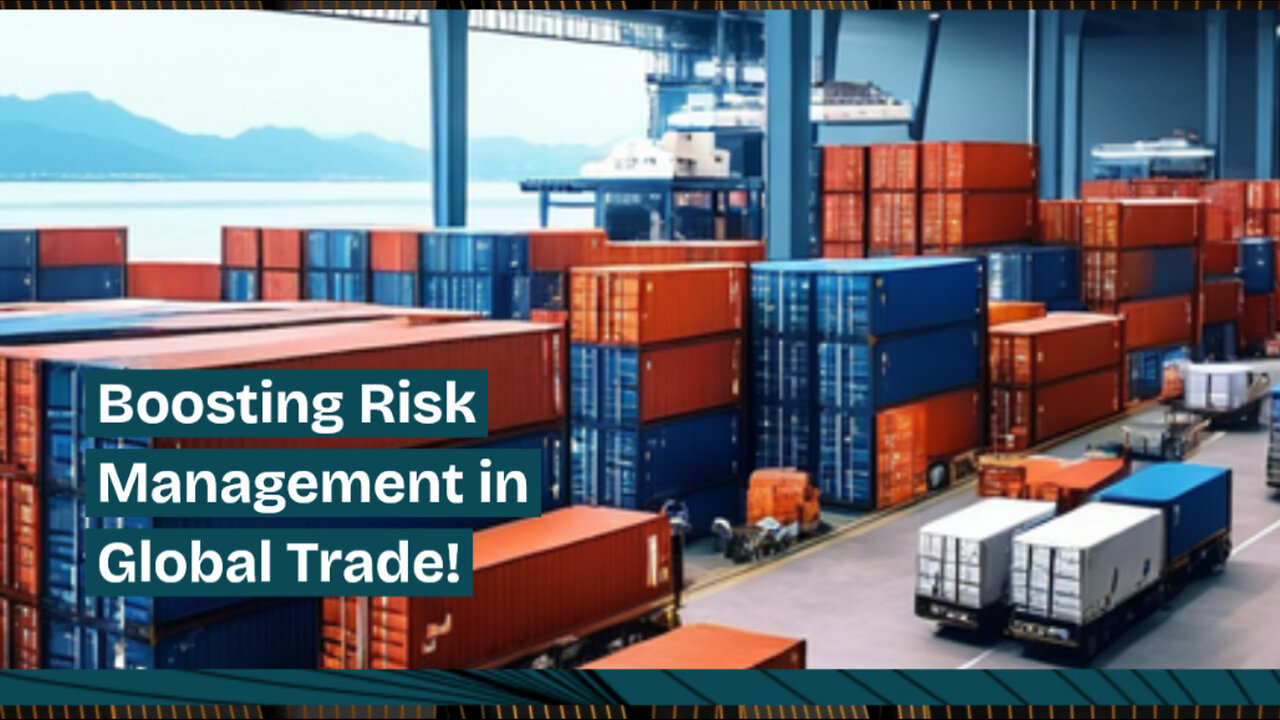Premium Only Content

Securing International Trade: The Importer Security Filing Explained
ISF Template | 562-453-7357 | [email protected] | www.isftemplate.com
Welcome to our video series on international trade and customs brokerage. In today's episode, we will be discussing the Importer Security Filing (ISF) and its role in strengthening risk assessment and management in international trade.
The ISF, also known as the 10+2 program, was introduced by US Customs and Border Protection (CBP) in 2009 to enhance cargo security by providing advance information about shipments before they arrive at US ports. One of the key components of the ISF is the requirement for an importer to have a customs bond. This bond serves as a financial guarantee that the importer will comply with all the relevant customs regulations and requirements.
The ISF, with its customs bond requirement, plays a crucial role in enhancing risk assessment and management in international trade. It ensures that importers are held accountable for their shipments and provides CBP with a mechanism to mitigate any potential risks associated with cargo entering the country.
Customs brokers play a vital role in the ISF process. They are responsible for filing the ISF on behalf of the importer, ensuring that all the necessary information is submitted accurately and on time. Brokers also assist importers in complying with other customs requirements and navigating the complex world of international trade regulations.
The ISF requires importers to provide detailed information about their shipments, including the names and addresses of the parties involved, the country of origin, the supplier, and the consignee. This data allows CBP to conduct comprehensive risk assessments, identify potential threats, and take appropriate actions to safeguard national security.
In addition to information, the ISF also requires importers to ensure the integrity of their shipments by affixing high-security seals to containers. These seals help in preventing tampering and theft, as well as aid in the identification of any unauthorized access to the cargo.
CBP uses the information provided through the ISF to assess the risk level associated with each shipment. Based on this assessment, CBP may conduct further inspections, targeting shipments that pose a higher risk. This targeted approach allows for more efficient use of resources and ensures a smoother flow of legitimate trade.
Compliance with the ISF requirements is crucial for importers to avoid penalties, delays, and even the denial of entry for the cargo. Proper compliance not only helps importers avoid these consequences but also improves their overall supply chain efficiency.
In conclusion, the Importer Security Filing, with its customs bond requirement and comprehensive risk assessment process, plays a vital role in enhancing cargo security and managing potential risks in international trade. Importers can ensure a smooth and secure flow of goods across borders by partnering with knowledgeable customs brokers and complying with the ISF requirements.
Thank you for watching this episode. Stay tuned for future videos on customs brokerage and international trade. Don't forget to subscribe for more informative content. Safe and secure trade to all!
#usimportbond
#isfcustomsbroker
#uscustomsclearing
#isfentry
Video Disclaimer Here: This video is designed for education and is unaffiliated with US government bodies.
00:30 - The Importer Security Filing (ISF) enhances risk assessment and management in international trade by providing advance information about shipments before they arrive at U.S. ports. It was introduced by U.S. Customs and Border Protection (CBP) in 2009 as the 10+2 program.
00:47 - The ISF requires importers to have a customs bond, serving as a financial guarantee to CBP for compliance with customs regulations. This strengthens risk assessment and management by holding importers accountable and providing CBP with a mechanism to mitigate potential risks associated with cargo entering the country.
01:24 - Customs brokers play a crucial role in the ISF process by filing on behalf of importers, ensuring accurate and timely submission of necessary information. They also assist importers in complying with customs requirements and navigating international trade regulations.
02:08 - Compliance with ISF requirements, including providing detailed shipment information and affixing high-security seals to containers, is crucial for importers to avoid penalties, delays, and entry denial for cargo. By partnering with customs brokers and complying with ISF requirements, importers can ensure a secure and efficient flow of goods across borders.
-
 LIVE
LIVE
Daniel Davis Deep Dive
6 hours agoRussia's Doomsday Weapon /MIT Prof. Ted Postol
179 watching -
 2:12:10
2:12:10
Steven Crowder
5 hours ago🔴Is This Really MAGA: What the Hell Is Donald Trump Doing?
410K457 -
 1:03:36
1:03:36
The Rubin Report
3 hours agoCNN Panel Looks Angry as Republican Points Out How Dems Shutdown Backfired
40.2K40 -
 1:11:36
1:11:36
Sean Unpaved
3 hours agoBen Johnson Has Caleb Williams Playing Best Football Of His Career! | UNPAVED
15K1 -
 3:11:24
3:11:24
Right Side Broadcasting Network
6 hours agoLIVE REPLAY: President Trump’s Veterans Day Wreath Laying Ceremony and Address - 11/11/25
70.3K18 -
 18:09
18:09
Professor Nez
3 hours ago🚨🔥HOLY MACKEREL! Chuck Schumer FLEES the Senate Floor when CONFRONTED on Obamacare FRAUD!
32.4K24 -
 1:07:04
1:07:04
The White House
4 hours agoPresident Trump and Vice President JD Vance Deliver Remarks
34K23 -
 1:40:45
1:40:45
The Shannon Joy Show
3 hours agoTrump & The Terrorist * MAHA Dead In DC? * Winter Weather Warfare: Live Exclusive W/ Dane Wigington
24.8K8 -
 35:12
35:12
Grant Stinchfield
3 hours ago $0.42 earnedHow Faith, Forgiveness, and Grit Keep the Oldest Among Us Alive and Thriving
17.8K1 -
 1:01:55
1:01:55
VINCE
5 hours agoYoung Men Are Taking The Red Pill (Guest Host Hayley Caronia) | Episode 166 - 11/11/25 VINCE
209K169